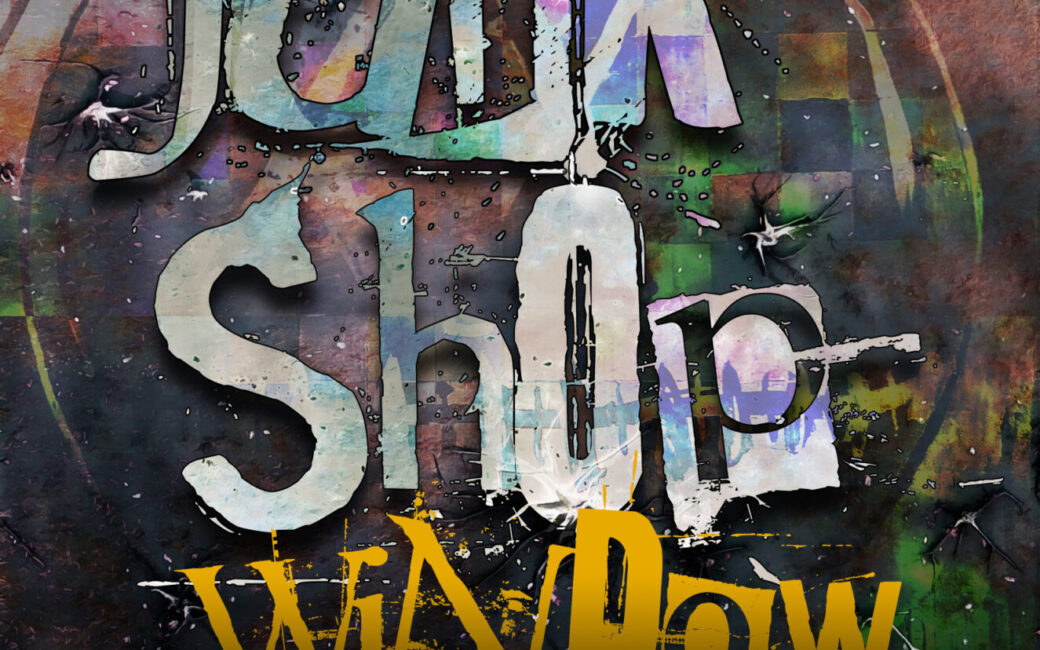-
I’m the Guy Who (Almost) Killed the Guy Who (Almost) Killed Albert Einstein
by James J. PattersonThis essay is from Patterson's upcoming collection Junk Shop Window: Essays on Myth, Life, and Literature, out June 6th from Alan Squire Publishing.
The Great Peace March for Global Nuclear Disarmament arrived in Washington, D.C., on November 15th, 1986. The participants had marched all the way from California to my hometown, the Capital of the Empire, to protest nuclear weapons. Under President Reagan, the war industry had shrugged off the negative image it had acquired during the Vietnam War. Now, saber-rattling politicians were postulating that nuclear war was something everyday citizens could speak of as a wise foreign policy option. After all, if you want to make astronomical amounts of money, the thing to do is to think astronomically. And the supersonic multi–nuclear warheaded MX missile, coming in at seventy million dollars a pop from the Raytheon Corporation, had the arms industry and all its dependents smiling, with stars in their eyes.
My two-man band, The Pheromones, had a steady group of regular venues where we played in and around D.C., as well as hot spots around the country. With songs like “The Great Rondini” (about our Teflon president), “Peace Once More,” and “MX Madness,” among others, we were the go-to guys if you wanted it topical, raw to the bone, and loaded with attitude. In other words, major media outlets wouldn’t touch us, but fans came in all shapes and sizes. Members of the march’s organizing committee had heard some of our anti-war numbers on the Pacifica radio station out in Berkeley. So, when the ragtag army of anti-war, anti-nuclear demonstrators were at last about to arrive at the nation’s capital after walking three thousand miles, those friendly organizers put us at the top of the show, slipping us in at the last minute. We would play at the Lincoln Memorial, where later Sweet Honey in the Rock, Holly Near, and Ralph Nader would praise those marchers for their massive contribution to the cause.
While the marchers were gathering in Martin Luther King Park, we had enough time for a quick sound check. My stage partner Alvis Pheromone picked two songs I had written years earlier on Clovelly Island in Canada, “Grace in the World” and “Holiday,” when even my closest friends didn’t know I could write, play, or sing. I would sit on the porch overlooking the Lovesick Lake and play to the gently rippling tides. Now those two songs boomed out across the Reflecting Pool and bounced off the monuments, delivering an eerie kind of wonder and surprise at life’s more ironic and unexpected twists and turns. We were standing where King had delivered his “I Have a Dream” speech. This memory still brings me happy chills.
Casey Kasem, a famous hit radio DJ, was the MC, and he called us up to the stage as the massive crowd of marchers was making its way to us from Martin Luther King Park and Lafayette Square. There were already a thousand or more people gathered there—tourists, locals, and a bunch of fans who had found out we were playing I know not how, because, being last-minute additions, we were not on any schedule. But we could see the throng of marchers, a people’s army, with their homemade banners, flags, and slogans, moving inexorably toward us with the slow determination of history itself. Our fingers were numb in the thirty-eight-degree cold, but we greeted them with songs: “Hey, Look Around You,” “MX Madness,” “The Great Rondini,” “Money Go Round,” “Host Homes,” “Peace Once More,” and “Galactic Funny Farm.” Kasem brought us back for “Grace in the World.”
As we stepped back from the mikes and took our bow, Kasem returned to talk to the crowd; we hurried over to put our guitars away as Sweet Honey in the Rock, an all-woman African American a cappela ensemble who just exude a kind of ancient life force, sang a spiritual welcome to our giant peace brigade, who were by now moving in that slow-surging not-to-be-denied way a large crowd moves, right up to the stairs of the Memorial.
As this was going on, at the back of the stage area, standing by our guitar cases, was Ralph Nader, flanked by two young acolytes, waiting for Kasem to introduce him. Now, this was long before Nader had torpedoed his liberal bona fides by running against Al Gore in the 2000 presidential election, still fourteen years distant, ensuring that stupid George W. Bush would become our president. But at the time, Nader was a genuine hero. I thought he could be another Abe Lincoln.
I approached Nader cautiously with an “is it okay?” look to his two handlers, who just smiled. I shook his hand and went on to explain that ten or more years earlier, I had bought a Chevrolet Monza that was a total lemon right from the first day I owned it. For example, the passenger door fell off—that’s right, it just fell off. It happened on a first date with a lovely woman I had taken to the Kennedy Center for a concert. It was pouring rain, and when I got out to open the door for her, it simply tore off from its welded hinges and landed in the gutter. Do you know how fucking heavy a car door is? What’s worse, my date insisted I take her home. So, with the car door sticking out of my hatchback, I drove her home with water pouring in her side. You’ll be shocked to learn that our first date was our last. Also, that first year, a strut bar beneath the car fell off, and the entire chassis dropped down, grinding all four tires to pulp with only a few rotations. But I digress.
So, with a couple thousand people waiting, I stood there and told Ralph Nader about a time I was coming up the hill on Florida Avenue, in front of the Washington Hilton, when my brakes failed completely. I was yanking desperately on the emergency brake and pumping the brake pedal wildly and was able to bring the car to a stop but not until I had entered the crosswalk and bumped a man who angrily banged his fist on the hood of my car.
That angry man was Ralph Nader.
“It should have been a Corvair!” Nader laughed heartily, referencing his legal suit against the car company that made him famous and led to massive safety reforms in the auto industry that to this day have saved countless lives. He went on to tell a story of his own. Back in his college days in Germany, he was driving an old beater car with bad brakes, and rolling down a hill toward an intersection where he bumped an old man in his pajamas in the crosswalk. That man was Albert Einstein.
“So, in another life,” he put his hands on my shoulders and smiled down at me, “You’re the guy who killed the guy who killed Albert Einstein!” We both laughed hard. I then handed him two cassettes of our tunes, bootlegged to sell from the stage, with maybe eighty original songs. “Are all these songs different?” he wanted to know as only a true consumer activist would, and he tucked them into his jacket pockets. Then he calmly stepped up to a microphone and said, “I presume that by now, after your courageous experience walking all the way across the country for peace, many of you will go on to become active critics of the footwear industry.”
It was a scream.
Nobody laughed.
Poor Ralph. Once upon a time, he was très cool.
That night we MCed a dance party for the marchers at a Nader event. When I recounted our conversation at the Memorial earlier that day, one of his aides laughed wearily, “Did he tell you his Einstein story? He tells that story to everybody!”
Now, I guess, so do I.
James J. Patterson
James J. Patterson is the author of the essay collection Junk Shop Window: Essays on Myth, Life, and Literature, out June 6th from Alan Squire Publishing. He also wrote Bermuda Shorts, an Indie Bestseller, and the novel Roughnecks. As Jimmy Pheromone, he crisscrossed north America for a decade, writing and performing songs as one-half of the satirical art-folk duo, The Pheromones. Patterson was the founder and publisher of SportsFan Magazine, dedicated to tracking the life and times of America’s sports fans.

